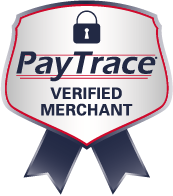We’re pleased to offer a free digital marketing consultation. Call today, (303) 357-5757, or e-mail dbc@dbcdigital.com.
Do you know what a ‘landing page‘ is and have you implemented one yet? If you haven’t, let’s explore what landing pages are, how they work, and what your options are for getting started. After all, landing pages are a valuable tool for lead generation and one that ~68% of medium-size companies regularly use to acquire leads. (source: Marketo, 2018)
What is a landing page?
Often the term, ‘landing page’ refers to any page where website visitors land when initially coming to your site. This is the type of landing page to which Google Analytics reports are referring. Yet, there is another use for the term — a landing page can also be a web page created for the sole purpose of converting visitors into leads by capturing a person’s contact information. This blog will be discussing the version of a landing page that is used for inbound marketing and lead generation.
How does a landing page work?
A website is a set of interconnected pages detailing your business. Business websites define who the business is, what it does, and explain products and services. Websites also may incorporate aspects such as a blog or login page. A landing page, on the other hand, is designed to explain an offer like a free trial, coupon, or ebook. Then in order to claim the offer, a visitor must provide personal information (name, email, phone number). Landing pages are solely focused on capturing leads to drive sales. Most often a landing page doesn’t even have navigation buttons or other links.

Landing Page Example
Testing, 1, 2, 3
So now let’s say you’ve got your marketing landing page and it is receiving a ton of traffic, yet are you converting those visitors into leads? A landing page with low conversion rates can be super frustrating, especially when it is hard to determine what the cause is. That’s where testing comes in.
Aspects you should consider testing:
- Copy: Text on landing pages is normally brief, but what is there should be carefully crafted. Make sure your page’s copy has maximum impact by keeping things concise and action-oriented.
- Tone: This is related to copy, of course. Keep your audience top-of-mind when selecting your tone. Having your page more casual or professional, light-hearted or serious, detailed or general, can have a big impact on your results.
- Media: Add or change a picture or video for improving conversion rates. According to Wordstream: Using videos on landing pages will increase conversions by 86%. (Wordstream, 2018)
- Keywords: SEO is always important, and selecting the right keywords can make a difference in who sees your page and whether the landing page is relevant. It’s a good idea to test multiple keywords in ads or on-page SEO and then assess the traffic and conversions.
Here are a few other common issues beleaguering your landing page conversion rates
1. Slow loading landing page
Website loading speed makes a huge difference in who stays and who moves along. Several factors can slow down your landing pages. The most common offender is having oversized images. In an analysis of 18,639 landing pages, pages without oversized images led to an average conversion rate of 11.4%, compared to 9.8% for pages with oversized images (source: Unbounce Marketing).
2. You have multiple CTAs
Competing CTAs create confusion among visitors which results in fewer leads. Each landing page should include one direct call-to-action that directs visitors as to what their next step should be. Research shows that landing pages with one link led to an average conversion rate of 13.5%, while pages with two to four links led to an average conversion of 11.9%. For five or more links, conversions dropped even lower to 10.5%. (source: Unbounce Marketing)
4. Your landing page is just plain boring
It only takes a few seconds for a visitor to determine whether they’ll remain on a particular page or not. Because of this, it is vital to include multimedia elements to liven things up — but don’t over do it. Opt for a simple, clean design over flashy with too many bells and whistles.
5. Not mobile-friendly
If your landing page is not optimized for mobile users, you will likely miss out on a significant portion of traffic. Also, keep in mind the different ways users interact with your site on mobile vs desktop. For example, mobile pages should include shorter, multiple-choice sign-up forms that are easy to complete on a mobile device.
6. Your landing page contains too much text
Most web users scan pages rather than read them entirely. As a result, landing pages with a high word count may receive fewer conversions. For this reason, we recommend that you cut down your word count and only include essential information within your copy. Also, consider text formatting. Use bullets, headers, and spacing to break up large blocks of text.
Attract Different Customers

Keep in mind that while your website generally stays the same, you can appeal to certain market segments by creating custom landing pages. Know that the content, offer, page style, and advertising you choose will determine how impactful the page is on the new market.
- Demographic: Age, interests, education and other factors can influence what products or services customers look for and what types of landing pages they will respond to.
- Location: Make it easier for customers in an area to find you by creating landing pages dedicated to that specific location
- Price: Some customers shop by price alone, while conversely others may be looking for quality, no matter the cost. The correct landing page can assist you in targeting either group and direct them to the right products, services, or content.
In conclusion
As you build your digital marketing toolbox, including landing pages is now a must, and both you and your customers will reap the benefits. Landing pages help increase your conversion rates and lower your cost of acquiring a lead or sale.
How are landing pages a part of your business’ marketing strategy?
DBC Digital is a full-service digital marketing company that provides everything you need to run successful content marketing campaigns. We’re located in the Denver metro area, just south of the Denver Tech Center, near I-25 and Dry Creek Road. We provide marketing services for businesses and organizations throughout the United States.











